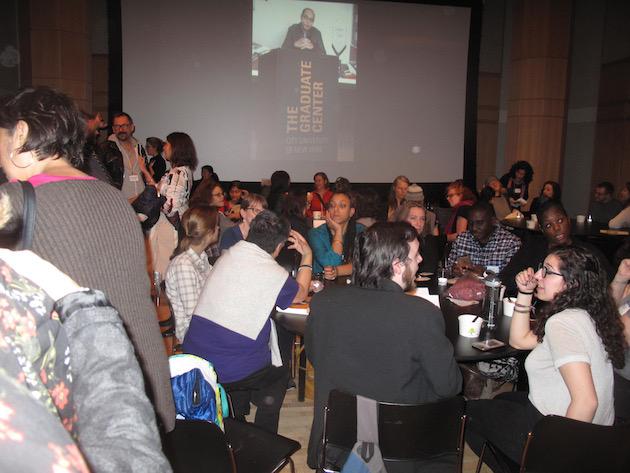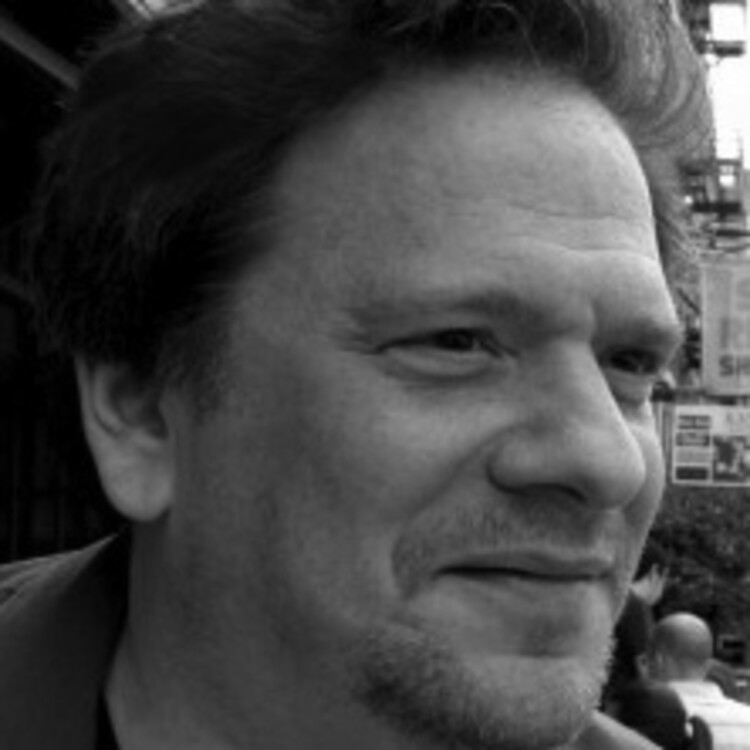Theatre and Resistance
Ten Things You Can Do
On 12 January 2018, theatre artists, activists, academics, and administrators from as far away as Cameroon and as nearby as upstairs from the CUNY Graduate Center’s Martin Segal Theatre Center gathered together for what the organizers called the Theatre and Resistance Symposium. You can watch a video of the first four hours.
A year ago, what many people in the theatre community meant when they used the term resistance—what many people in the United States as a whole meant by it—seemed clear: protest against the policies and the person of US President Donald Trump.
But the symposium used the term more broadly, treating it as a synonym for “progressive activist theatre” around the world. Of the dozen “case studies” that speakers presented, for example, eight were from abroad (mostly communicating via Skype), and they understandably concentrated on their own regional concerns and opportunities.
'When times are really awful, it’s a good time for art. I feel really hopeful.'—Martha Redbone
The day was divided into four parts. After the case studies, there was a panel discussion of five artists discussing their lives as activists, followed by a brief presentation of three issues: theatre and diversity; artist rights and mobility; climate change and sustainability. Afterwards, the crowd gathered for lunch, sitting at tables labeled with one or another of these issues, in order to continue the discussion.

Many of those who attended seemed inspired, not just by the theatrical activism, but by the challenges they are attempting to address. “When times are really awful, it’s a good time for art. I feel really hopeful,” Martha Redbone told the crowd.
Katy Rubin of Theatre of the Oppressed agreed. “If you feel confused, that’s great. That’s the way we believe you need to be to make change.”
But with such a wide net and so much to absorb, one could walk away from the symposium feeling discouraged, even if one tries to restore the meaning of “resistance” to its more narrow and urgent domestic focus of a year ago.
“There is something to resist at every turn these days,” says Julia Levine of Climate Change Theatre Action. “I find it helpful to reframe ‘resistance’ as ‘persistence.’”
Below are ten relatively concrete suggestions for domestic action, some of them taken (or extrapolated) from the speeches during the conference; others by my following up afterwards with some of the speakers.
1. Join a theatre group committed to the kind of activism you can get behind, either by contributing work as an artist, or by becoming part of their audience. To Katy Rubin of Theatre of the Oppressed NYC, these roles are one and the same thing—there are no spectators; TONY treats everybody as a “spec-actor.” (I’ve written about two of their plays, Apprehension, about police/community relations and Save the Drama, about LGBT youth.) Several groups of theatre artists have sprung up since the 2016 Presidential election, including Artists Rise Up LA and Artists Rise Up NY.
“With all our events, we will have interactive installations, speakers from the community and vibrant group discussions,” says Jessica Litwak, founder of the New York chapter. Their productions raise money for organizations, such as the ACLU, that actively combat the Trump administration’s policies in court, and in the court of public opinion.
2. Look to your own house. Make sure the organizations to which you belong makes room for a variety of voices. Martha Redbone is more specific: “Make sure your board is 51 percent women and people of color.”
3. Write a play about climate change, or produce one from Climate Change Theatre Action—or buy the scripts when they are published. The organization is a worldwide series of readings and performances about climate change, presented biennially to coincide with the United Nations conference. In 2017, playwrights from around the world were commissioned to write fifty five-minute plays on topic, which were then produced at theatres, schools, and other organizations in communities, coupled with an action of some kind. A new set of plays will be available in 2019. In the meantime, you can join Climate Change Theatre Action’s mailing list by filling out the contact form.
4. Create your own productions, and don’t be afraid to present them beyond “the temples of culture where such a small percentage of our population ever come through the doors,” says Derek Goldman, artistic director of the Davis Performing Arts Center and professor of Theatre and Performance Studies at Georgetown University. These include public squares, community centers, prisons, and schools.
“A lot more people go to dance clubs or comedy clubs. You can infiltrate them,” adds Matthew Covey of Tamizdat, a nonprofit organization that that aids in international cultural exchange, which was one of the organizers of the conference.
5. Explore other art forms, and platforms beyond art. “YouTube, Vimeo, and podcasts are a cost-effective way to reach vast audiences that may never set foot inside a theatre,” Covey suggests. Issa Nyaphaga, the theatre artist from Cameroon who was imprisoned there for his activism, helped create Radio Taboo, which has been broadcasting for the last four months.
Frank Hentschker, executive director of the Martin E. Segal Theatre Center and one of the organizers of the symposium, suggests the following four actions he calls “practical.”
6. Identify a public park, however small, and encourage public meetings every Thursday from 6:00 to 9:00. Bring food, drinks, listen, talk until this becomes a large weekly gathering.
7. Become a cultural producer of one event a month, always followed by a discussion.
8. Organize a Mothers Day demonstration behind a large puppet of the Statue of Liberty. Ask everyone to bring books and spring cleaning supplies.
9. Vote. And convince one other person to vote. Or, if you’re not eligible to vote, ask someone to vote on your behalf.
“People say they do not know what to do,” Hentschker says. “But if everyone gets just one more person to vote it would be a powerful contribution.”
And the tenth suggestion: Listen to other people. (Put your recommendations for action in the comments below!)


Comments
The article is just the start of the conversation—we want to know what you think about this subject, too! HowlRound is a space for knowledge-sharing, and we welcome spirited, thoughtful, and on-topic dialogue. Find our full comments policy here
Theater students at my institution created "Rules of Civility" for classwork/rehearsal/performance/life.
Get involved with a local activist group or chapter and offer to provide Art-Sustainance- Create art for their planned actions and organize art gatherings that renew, deepen, nurture and inspire their efforts and build compassionate communities through theatre and art.